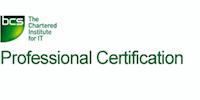ISTQB Software Testing Foundation
Online course including exam
Training Deals
Summary
- Exam(s) / assessment(s) is included in price
- Tutor is available to students
Add to basket or enquire
Overview
This Software Testing Foundation training course offers an introduction to the fundamentals of Software Testing. Delegates will learn about the main principles of Software Testing, which include testing standards, testing life cycles, testing techniques and tools, and static testing.
Participants will also learn how to implement and analyse Software Testing methodology. This training course adopts the ISTQB’s syllabus, and is officially acknowledged by the BCS, hence making Software Testing Foundation an authentic certification to obtain. Software Testing Foundation strives to prepare delegates effectively for the examination.
Certification
ISTQB Certified Tester – Foundation Level
Description
This ISTQB Software Testing Foundation training course covers the following topics:
The Fundamentals of Testing:
-
What is testing?
-
Why is testing required?
-
How much testing is a good amount?
-
Static testing V dynamic testing
-
The seven principles of testing
-
The fundamental test process
-
Testing psychology
-
Testing code of ethics
Testing throughout the Lifecycle:
-
Test levels
-
Software development designs
-
Component testing
-
Component integration
-
System testing
-
System integration
-
Acceptance testing
-
Alpha and Beta testing
-
Functional testing
-
Non-functional testing
-
Maintenance testing
-
Structural testing
-
Retesting V Regression testing
Static Test Techniques:
-
Walkthroughs
-
Reviews
-
Technical reviews
-
Inspections
-
Static analysis
Testing Design Techniques:
-
Test development process
-
Black-box V white-box testing
-
Equivalence partitioning
-
Boundary value analysis
-
State transition testing
-
Decision table testing
-
Case testing
-
Statement testing V decision testing
-
Experience-based testing
Test Management:
-
Organisation
-
Planning
-
Estimation, control, and monitoring
-
Managing configuration
-
Managing incidents
-
Risk management
Tool Support for Testing:
-
Test tool types
-
Using tools effectively
-
Selecting and implementing tools
Who is this course for?
This training course is appropriate for anybody interested or involved in Software Testing. Particular professions that may benefit from Software Testing Foundation include:
-
Project Managers
-
Quality Managers
-
Business Analysts
-
Management Consultants
-
IT Directors
Requirements
There are no prerequisites for this Software Testing Foundation training course, so everyone is able to attend.
There is no pre-course reading. However, we recommend delegates read the Software Testing BCS textbook to prepare for the Foundation examination.
Questions and answers
Reviews
Legal information
This course is advertised on reed.co.uk by the Course Provider, whose terms and conditions apply. Purchases are made directly from the Course Provider, and as such, content and materials are supplied by the Course Provider directly. Reed is acting as agent and not reseller in relation to this course. Reed's only responsibility is to facilitate your payment for the course. It is your responsibility to review and agree to the Course Provider's terms and conditions and satisfy yourself as to the suitability of the course you intend to purchase. Reed will not have any responsibility for the content of the course and/or associated materials.


